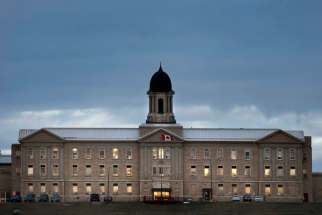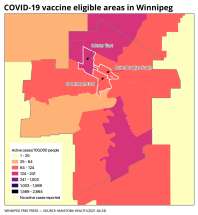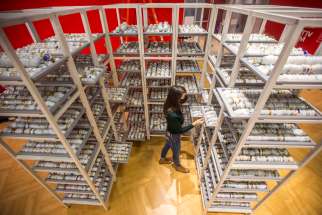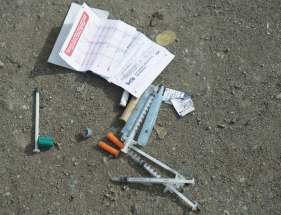Three Winnipeg neighbourhoods get priority access to vaccines
Read this article for free:
or
Already have an account? Log in here »
To continue reading, please subscribe:
Monthly Digital Subscription
$0 for the first 4 weeks*
- Enjoy unlimited reading on winnipegfreepress.com
- Read the E-Edition, our digital replica newspaper
- Access News Break, our award-winning app
- Play interactive puzzles
*No charge for 4 weeks then price increases to the regular rate of $19.00 plus GST every four weeks. Offer available to new and qualified returning subscribers only. Cancel any time.
Monthly Digital Subscription
$4.75/week*
- Enjoy unlimited reading on winnipegfreepress.com
- Read the E-Edition, our digital replica newspaper
- Access News Break, our award-winning app
- Play interactive puzzles
*Billed as $19 plus GST every four weeks. Cancel any time.
To continue reading, please subscribe:
Add Free Press access to your Brandon Sun subscription for only an additional
$1 for the first 4 weeks*
*Your next subscription payment will increase by $1.00 and you will be charged $16.99 plus GST for four weeks. After four weeks, your payment will increase to $23.99 plus GST every four weeks.
Read unlimited articles for free today:
or
Already have an account? Log in here »
Hey there, time traveller!
This article was published 23/04/2021 (1696 days ago), so information in it may no longer be current.
Minutes after the Manitoba government expanded COVID-19 vaccine eligibility for adults living in three Winnipeg neighbourhoods, Mathew Joseph had booked his appointment for the shot.
The 32-year-old resides downtown and works for the Immigrant & Refugee Community Organization of Manitoba as an after-school program manager.
“This is our home, this is our space, this is our community, and there’s no protection. But now we do have the choice now that we can be protected with the vaccines,” Joseph said by phone from his home in the prioritized district of “Downtown East.”
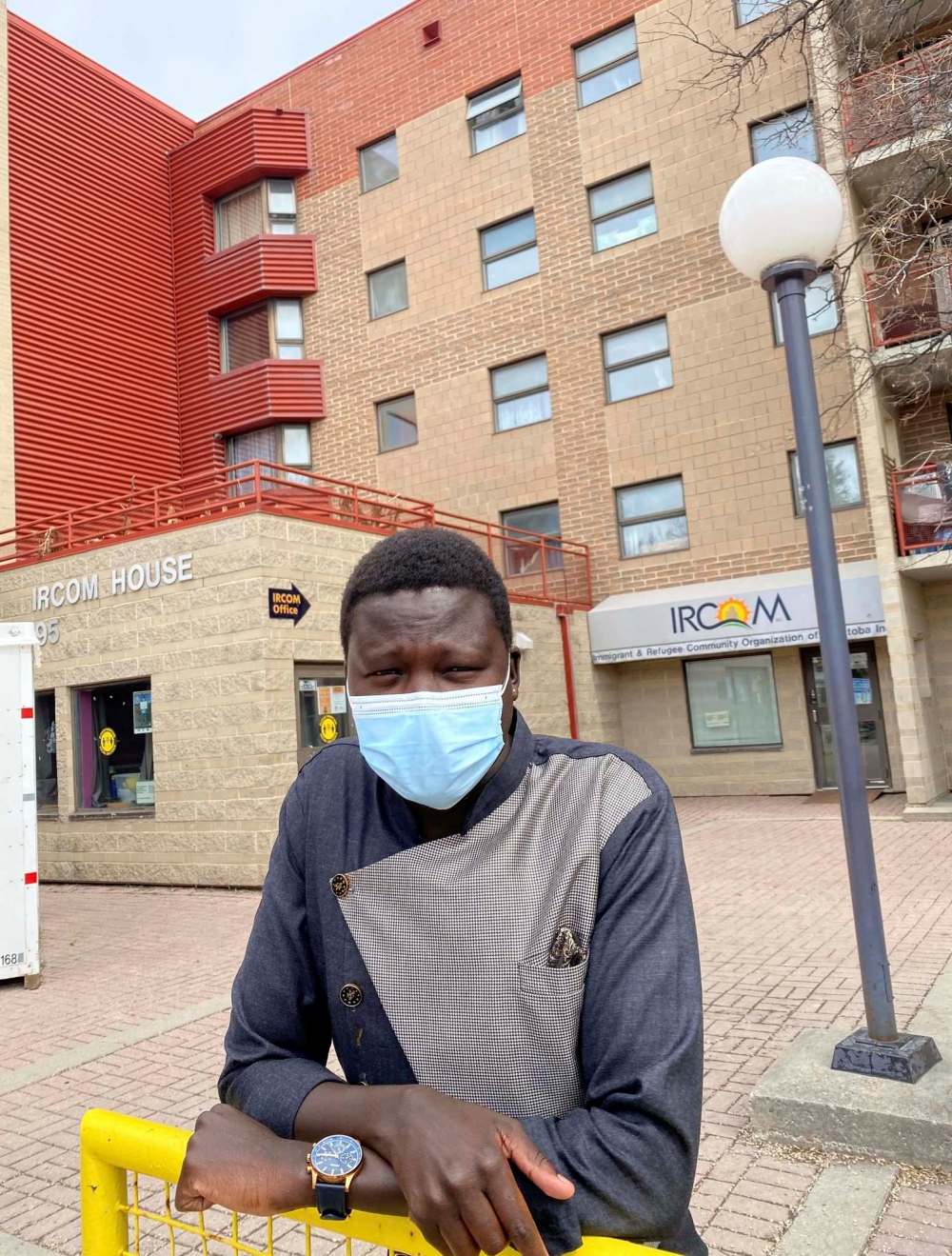
“We have so many struggles within downtown, such as (access to) grocery stores, so I thought this was a very thoughtful decision by the government on behalf of the people.”
About 35,000 people became eligible to receive COVID-19 vaccines Friday, as Manitoba expanded its vaccine rollout to include all adults who live in Downtown East, Point Douglas South and Inkster East, and some front-line worker employed in those areas.
“In these communities, we’ve seen, starting October forward, that they’ve had higher case counts than other parts of the province,” said Dr. Joss Reimer, medical lead for the provincial COVID-19 vaccine task force.
“There was a lot of transmission in these three areas, so that was the No. 1 factor that brought them to the top of the list.”
“We have so many struggles within downtown, such as (access to) grocery stores, so I thought this was a very thoughtful decision by the government on behalf of the people.”
– Mathew Joseph
She said persistent, localized COVID-19 transmission was also considered, in addition to high-risk community characteristics that could lead to future outbreaks. (A map showing the boundaries of eligible neighbourhoods can be found on the province’s website: gov.mb.ca.)
“The vaccine takes a few weeks before it works,” Reimer said. “So our focus is not so much to stop an outbreak that’s already happening where everybody in a certain location has already been exposed.
“Our focus is trying to understand where the highest-risk areas of ongoing transmission are, because we want to intervene before we start to see those really focused outbreaks.”

Eligible workers include teachers, child care providers, public health inspectors, and workplace safety and health officers, and anyone who works in a food processing facility, grocery or convenience store, at a gas station, restaurant, food bank or anywhere that serves food.
Reimer said more communities will be prioritized next week.
In the meantime, Joseph said the work of community organizations such as IRCOM will begin to make sure people are aware vaccines are available and they are eligible to receive them.
In collaboration with Manitoba Association of Newcomer Serving Organizations, Joseph said informational material has already been prepared to inform and educate the community it serves about COVID-19 vaccination.
Maps and additional information to distribute in the community is being prepared, he added, and walking escorts to clinics may be provided, if needed.
“We’ve got to continue letting them know that there’s great news happening and the benefit of the vaccines, but we’re also going to encourage them,” Joseph said, adding the organization has support from the Winnipeg Regional Health Authority and social workers.
“It’s great news and we’re hoping the families are going to jump on it.”
Reimer said the province is also working to translate written materials into different languages to circulate through the prioritized communities, as well as connecting with organizations that provide services in the areas.
“Our focus is trying to understand where the highest-risk areas of ongoing transmission are, because we want to intervene before we start to see those really focused outbreaks.”
– Dr. Joss Reimer
“Our communications team, our medical officers of health, our public health nurses and many others are working very hard to connect with the local communities, because we know that hearing from a local trusted voice is often the most effective way to make someone feel comfortable in going for a vaccine,” Reimer said.
NDP MLA Uzoma Asagwara said by prioritizing residents who live in the Union Station constituency, working-class Winnipeggers, many who are lower income and have essential service jobs, will have a bit of relief moving forward.
“For them, it is crucial to be able to go to work, take public transportation, and provide for their families with a peace of mind that they’ve got this vaccine,” Asagwara said.
However, the NDP health critic said immunization needs to be barrier-free and workers need to be able to get the shot without losing wages or hours to see uptake among those who are at greater risk of the disease.
“And that approach comes from talking to the community members themselves, and having a solution-focused effort around them,” Asagwara said.
In addition to previously established avenues, people living in prioritized communities can also book appointments at Aboriginal Health and Wellness Centre (181 Higgins Ave.) and Ma Mawi Wi Chi Itata Centre (363 McGregor St.).
— with files from Katie May
danielle.dasilva@freepress.mb.ca

Our newsroom depends on a growing audience of readers to power our journalism. If you are not a paid reader, please consider becoming a subscriber.
Our newsroom depends on its audience of readers to power our journalism. Thank you for your support.
History
Updated on Friday, April 23, 2021 6:15 PM CDT: Adding to ATF
Updated on Friday, April 23, 2021 6:22 PM CDT: Adds photo, formatting.
Updated on Monday, April 26, 2021 9:30 AM CDT: Corrects address of Aboriginal Health and Wellness Centre to 181 Higgins Ave.


